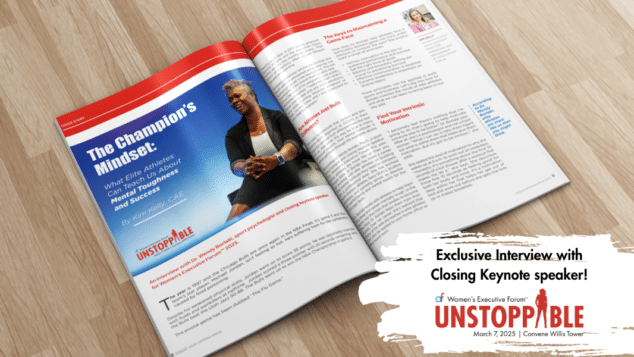4 Key Strengths of an Association’s Board

Association leaders represent a variety of industries and fulfill members’ needs through various approaches. Although each association operates differently, all leaders should nurture four essential characteristics.
In McKinley Advisors’ 2023 study of association executives, Next Level Governance™: Leading with Strategic Agility, association executives identified respect, trust and candor; diverse leadership; courage to change and dynamic learning as the core strengths vital to association boards.
Cultivating these strengths requires a commitment from your leadership team. It begins by analyzing the structure, systems and processes you currently have in place and then taking action.
Respect, Trust and Candor
Ensuring that all perspectives are respected and valued during decision-making processes requires an investment in building and sustaining a healthy board culture. Boards that feel a high level of trust can flex their candor muscle, thus it’s important that board members develop meaningful relationships with one another. Attending in-person or virtual social events and taking opportunities to connect on a human level with other board members and staff helps to cultivate trust and empathy.
Even with strong relationships, some boards will need to practice creating an atmosphere of respect, trust and candor. One way they can do this is by setting ground rules for board meetings that encourage honest feedback. Rules such as “Combine inquiry with advocacy with inquiry,” “Assume positive intent” and “Say the thing” help to create an open dialogue. Exercises like the Six Thinking Hats offer the opportunity to practice candor in a conflict-free way.
Diverse Leadership
Most association leaders today talk about having a diverse, equitable and inclusive volunteer leadership, but fewer are taking the time and resources to fully realize the goal. All associations should regularly review their systems and processes and consider whether they are inclusive, equitable and accessible.
Questions to ask yourself include:
- How are we communicating board opportunities to our membership?
- Are the channels accessible?
- Is the language inclusive?
- Is the process to apply clear?
- Are the requirements associated with board service accessible to all our members?
- Are there requirements that prevent certain stakeholder types from pursuing board leadership?
- When does our board typically meet and is that accessible to all types of members?
- Are there cost barriers (hotel, airfare, child care during meetings, etc.) that should be addressed?
- Who nominates or selects board candidates?
- How are we preparing board candidates to successfully serve?
- What does the pathway to leadership look like?
- Have we incorporated DE&I into board orientation and ongoing training?
- How are we tracking our progress?
- Have we established who is leading this effort?
- Have we determined what success looks like?
- Have we incorporated measures into our association’s key performance indicators?
Courage to Change
Every association executive faces uncertainty and risk. It’s the leaders who are not afraid of change that survive and thrive.
Change is difficult, even when it’s a positive change, such as launching a new product or adding a membership category. As we consider what it takes to build the courage to change, we have to acknowledge the human element of change and allow our board to express themselves and feel heard. Create space for your board to “say the thing” and acknowledge their level of comfort or discomfort with the proposed change.
Data is a powerful tool that should be used to inform the change management process. It frees you from being solely focused on personal opinion and preference and can offer a compelling narrative for the change. Support the need for change with member research, financial and engagement data and forecasting to make your case.
Risk management is also a large component of change. Every association will face risks and opportunities that create the possibility of change. As such, associations should develop an enterprise risk management strategy that helps the association understand and define its process for identifying and addressing potential risks. This includes exploring your board’s risk appetite: the acceptance of volatility an institution is willing to assume in executing its business strategy, and risk tolerance: the day-to-day operational limits developed within the context of an organization’s stated risk appetite.
Dynamic Learning
Dynamic learning means being adaptable, considering opportunities and monitoring the world around you. Dynamic learning can occur in many forms, such as generative discussions with the board, engaging external thought leaders to extend your viewpoint, and executing research on your membership, market and industry. To fully embrace dynamic learning within your board, ask yourself these questions:
- How are our board meetings structured and how do we use our time?
- Do we carve out time to think expansively and consider the future of our industry or profession?
- Do we have a comprehensive research strategy?
- Do we leverage data and research to inform strategic decision-making at the board level?
- When was the last time we piloted a new product or member benefit before committing to a full-scale rollout?
- How can we use learnings from pilot periods to manage risk and inform future product development?
- What role does dynamic learning play in the creation and oversight of our strategic plan?
- Do we regularly assess the world around us and adapt our organizational strategy accordingly?
When you foster an environment of respect, trust and candor; diverse leadership; courage to change and dynamic learning on your board, you can create a lasting impact.
Tags
Related Articles
The Weight We Carry: What Teams Wish Leaders Understood
Association professionals are feeling the strain of relentless change—burnout, shifting expectations, and emotional fatigue are...
‘Let’s Get an Intern’: Rethinking Internships in the Association World
With structure and purpose, internships can be more than free labor — they can shape...
The Champion’s Mindset: What Elite Athletes Can Teach Us About Mental Toughness and Success
An interview with Dr. Wendy Borlabi, sport psychologist and closing keynote speaker for Women’s Executive...





